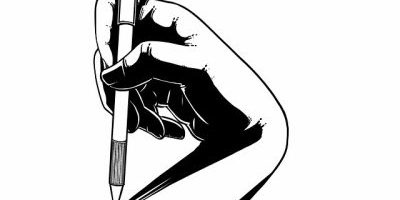Choosing a narrative point of view depends on how close the writer wishes to connect with the reader. Choosing a narrative point of view also depends on the type of content the author wants to write about. Other writers when discussing the point of view in writing may also refer to this subject as choosing a narrative voice.
If a person chooses to blog, write a self-help book, a novel or a children’s book, whatever the piece of content may be, choosing a narrative point of view is the question that comes up before typing the first sentence. If this question hasn’t struck a writer before the first sentence or in the first sentence then, I assure you, by the end of the paragraph this question will certainly come up.
A successful writer will create a strong connection with the reader, he/she also will want to connect the roles of the characters within the story. Linking the story, the characters and connecting the story to the reader without losing the reader is powerful storytelling.
Here are the 3 choices that authors/writers look at when choosing a narrative point of view.

1) First-person point of view
The first-person point of view is often used in non-fiction works. The story or the piece of content written would usually contain the pronouns me, I, we, us, our, my, ourselves, mine, and myself. Often memoirs or biographies are written in the 1st person point of view. This point of view places the reader in the character’s head.
Fiction books also use the first-person point of view; however, this point of view is weaved in creatively. There are ways that the narrator can use the first-person point of view either by limiting the storytelling directly to the main character or through narrating the actions of the main character, or other characters to keep the story mysterious.
When telling a personal recount in a form of a story is when the first-person point of view narrative is often used.
These are just a few books from many that have been written in the first-person point of view:
– To Kill a Mockingbird
– Mockingjay (The hunger games #3)
– The Hunger Games #2
– The Hunger Games #1
– Bridget Jone’s Diary
2) Second-person point of view
Choosing this narrative point of view in a novel can be the hardest but not impossible. Very few novels have been written in the second-person point of view. Choosing this point of view is very straightforward when writing a self-help book, and how-to… books. To clarify these are recipe books or books that help readers with a better quality of life. Novels such as The South African: True Colours and The South African: Roamer have been written in the second-person point of view.
The pronouns used in the second-person point of view is you, yours, yourself.
Choosing this point of view has many advantages and disadvantages. The main advantage being is that the reader can choose their own adventure. The reader becomes the main character and if used well, they will successfully be immersed into their own reading experience, almost like living the entire experience themselves. The reader has the freedom to feel other emotions apart from the emotions they are given to experience in the piece of content, and if written out cleverly they may leave the piece of content, chapter or book with thoughts that make them think for days.
A disadvantage to the second-person point of view is that the reader is imposed to living the experience, i.e., the experience in their adventure is the one that is placed in front of them, to be fair, most novels will already have the experience set out; the beginning, the climax, the plot and ending.
In blogging, you narrative is also very common. Here is an example of an article which ranked very high on Google using you narrative Some people will never like you because your spirit irritates their demons – Denzel Washington.
These are just a few books that have been written in the second-person point of view:
- Romeo and/or Juliet: A chooseable-path adventure
- Spill Simmer Falter Wither
- If on a winter’s night a traveler
Tip: Use the word “you” sparingly
3) Third-person point of view
When it comes to fiction novels choosing this point of view seems to be the most popular. Third-person pronouns are him, himself, he, she, it, his, hers, herself, its, itself, theirs, they, themselves and their. Choosing the third person narrative depends on whether an author is trying to be subjective meaning objective or omniscient meaning limited.
Subjective and objective narration
This sort of narration is placing the story from an angle where the author/writer chooses to provide facts and that which the author wishes the audience to see. The author doesn’t provide any feelings rather allows the reader to pick up what feelings come up to them allowing the reader to assume.
These are just a few books that have been written in the second-person point of view:
- The Maltese Falcon
- Of Mice and Men
Omniscient and limited narration
Choosing this point of view allows the reader to feel and know everything that is going on around him/her. All feelings, surroundings, thoughts are given to the reader. In choosing this point of view the author/writer is limited to focusing on just one character.
These are just a few books that have been written in the second-person point of view:
- The Chronicles of Narnia #1-7
- Into the wild
- Jurassic Park #1
- The Lost World (Jurassic Park #2)
- The Lord of the Rings: The Fellowship of the Rings (#1)
- Harry Potter (some parts)
Third-person multiple narrative
Using the third-person multiple allows an author/writer to use several characters which permits them to switch viewpoints.
Using the third-person multiple narrative should be used in a way where the reader doesn’t become confused or lose their tracks.
These are just a few books that have been written in the second-person point of view:
- The Time Traveler’s wife
- Under the Empyrean sky
- Warbreaker
Now, hopefully this article has made it helpful in choosing a narrative point of view for your writing project. Stay tuned for our next topic as you continue the journey to become a writer, blogger, poet or content creator.
So, did you like my typed-out article? After all, we are in thy modern life. Shakespeare was always writing in pen. I always wondered why. Someone said it’s because he could not decide what type of pencil to use – a 2B or not 2B.
If you are pondering on using a pseudonym or pen name, then you’d want to read the next article. Aren’t you curious to know why Freddy Mercury changed his name?
Subscribe to my blog on www.tdenchpatel.com by filling in your name and email address for updates on more articles such as this one.
Drop us a comment below and follow us or share this article on Instagram, Tiktok, Facebook.
You can also have a look at this short choosing your narrative video.
Yours sincerely,
T. Dench Patel











